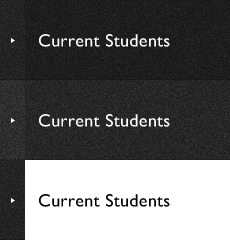Summer Exchange Research Program(SERP) University of Oxford, July to September 2019
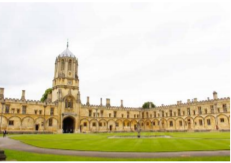
Year of Study: |
M1 |
|---|---|
School: |
Materials and Chemical Technology |
Country / Region: |
U.K. |
University / Institution: |
University of Oxford |
Program Duration: |
July to September 2019 |
About the university
University of Oxford is one of the leading universities in the world.
Established in 1906, making it one of the oldest university in the world.Oxford has educated many notable alumni, including prime ministers and heads of government as well as Nobel Prize winners and Turing Award winners.
About application and preparation
My application and preparation for this program spanned from January to May, when I was a M1 student. And as I’m enrolled in September so I didn’t have to worry about job hunting at that period. I stayed there for 2 months from July to early September. During summertime there are lots of professors who would take vacations so we don’t usually get to the group we wanted to be in.I was a member in group of Nicole Grobert, and we had a skype interview before we went there (But relax, it’s not a serious one). Unlike Japanese, I have to apply for a short term study visa go get there, as well as a certificate called ATAS due to the sensitive major which takes more than 20 working days to get it. The academic secretary will help you with it.
About my research
The major focus of our group is nanotubes by design, including carbon nanotubes and boron nitride nanotubes. My project focused on whether we can improve electrical properties of polymer by adding carbon nanotubes (CNTs). Firstly, we synthesized multiwall carbon nanotubes (MWCNTs) by aerosol-assisted chemical vapour deposition (AACVD). Then SEM was done to analyze the morphology of CNTs synthesized.
Then we integrated various proportions of both single-walled and multi-walled CNTs into diacrylate (TPGDA), then use spin-coating to deposit carbon nanotubes (CNTs)/acrylate solution on flexible PET substrate. Polymerization of diacrylates was achieved by UV. FTIR tests were done to check the polymerization status. Both SEM and optical microscopy were tried also to characterize the dispersion.
After successfully dispersed CNTs and cured the polymer, different concentrations of CNTs acrylate solutions were deposited on substrates to see the electrical properties among various concentrations. For samples to run electrical tests, electrodes (coating of copper by evaporation) were put both on substrate prior to spin coating and after polymerization of monomers to form capacitors. Capacitance and impedance of those thin films were tested under different frequencies.
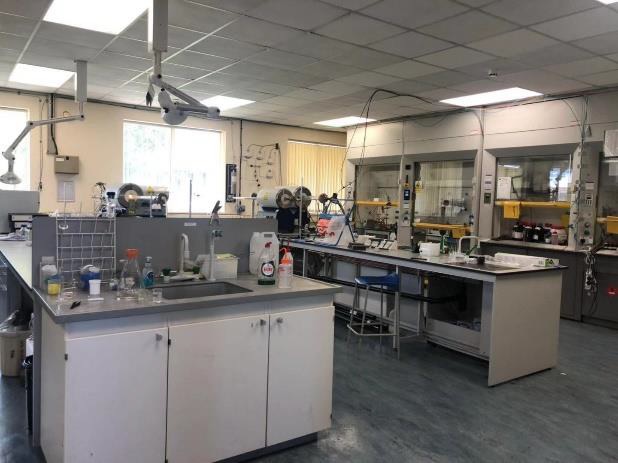
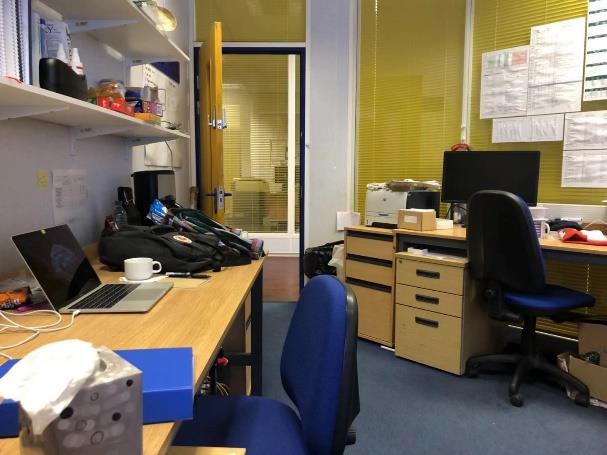
Our lab and the office
About our lab life
Our lab lies at a place called Begbroke Science Park several kilometers away from the department, and there’s a minibus we can take for free.In Nicole’s group, we have lunch together everyday. People usually talks about recent plans, or things going on around the world, or exchange cultural experience because we are from all over the world, or just some random interesting topics. It is a really lovely group. And we also had a barbecue which was really fun.
About accommodation
One of the colleges provides us an accommodation with 25 pounds/day.
It’s really convenient with about 15-minutes-walk from downtown but a little bit expensive. The conditions are pretty good, we share shower room and toilets, as well as kitchen, and we have scouts who doesthe cleaning so we don’t have to do it ourselves.
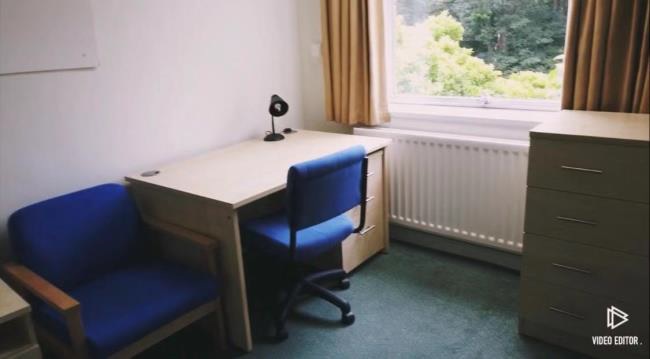
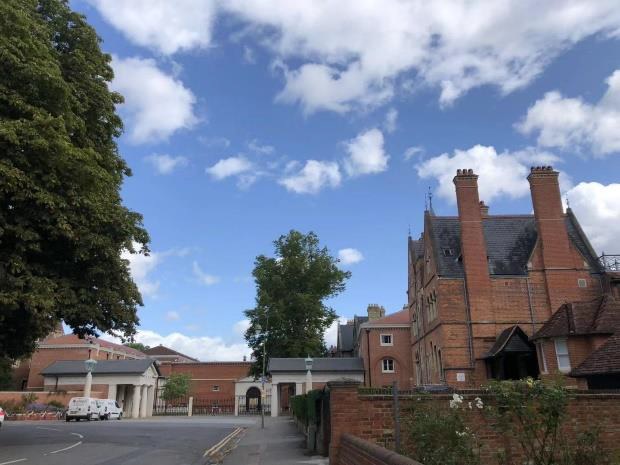
Inside and outside the dorm
About living expenses
The cheapest round flight ticket from Tokyo to London is more than 100,000JPY. There are buses can get you directly to Oxford downtown from whichever airport in London (Heathrow or Gatwick is more convenient).
The living fee in Oxford is rather high, comparing to other towns with similar scale as Oxford, and we also hear complaints from local students as well. For us, the rent is 750-800 pounds per month, local students who rent and share a house may only pay around 400 pounds per month. For daily food and stuff, I mostly just buy fast food from supermarket or eat at Begbroke’s cafeteria,with around400-500 pounds cost per month. Fruit and vegetables can be really cheap sometimes, but still with good quality, for instance, 60 pence for four nectarines or 2 pounds for 1lb strawberry or cherry.
About future plans
People I met in Oxford are all nice, smart, hardworking and fun. When they work, they work seriously; when they relax, they just enjoy it.
This experience actually let me seriously consider about whether to do a PhD or not after master graduation.But no matter what my choice would be, I would take this as an incentive to keep working hard and try my best in everything I do.


